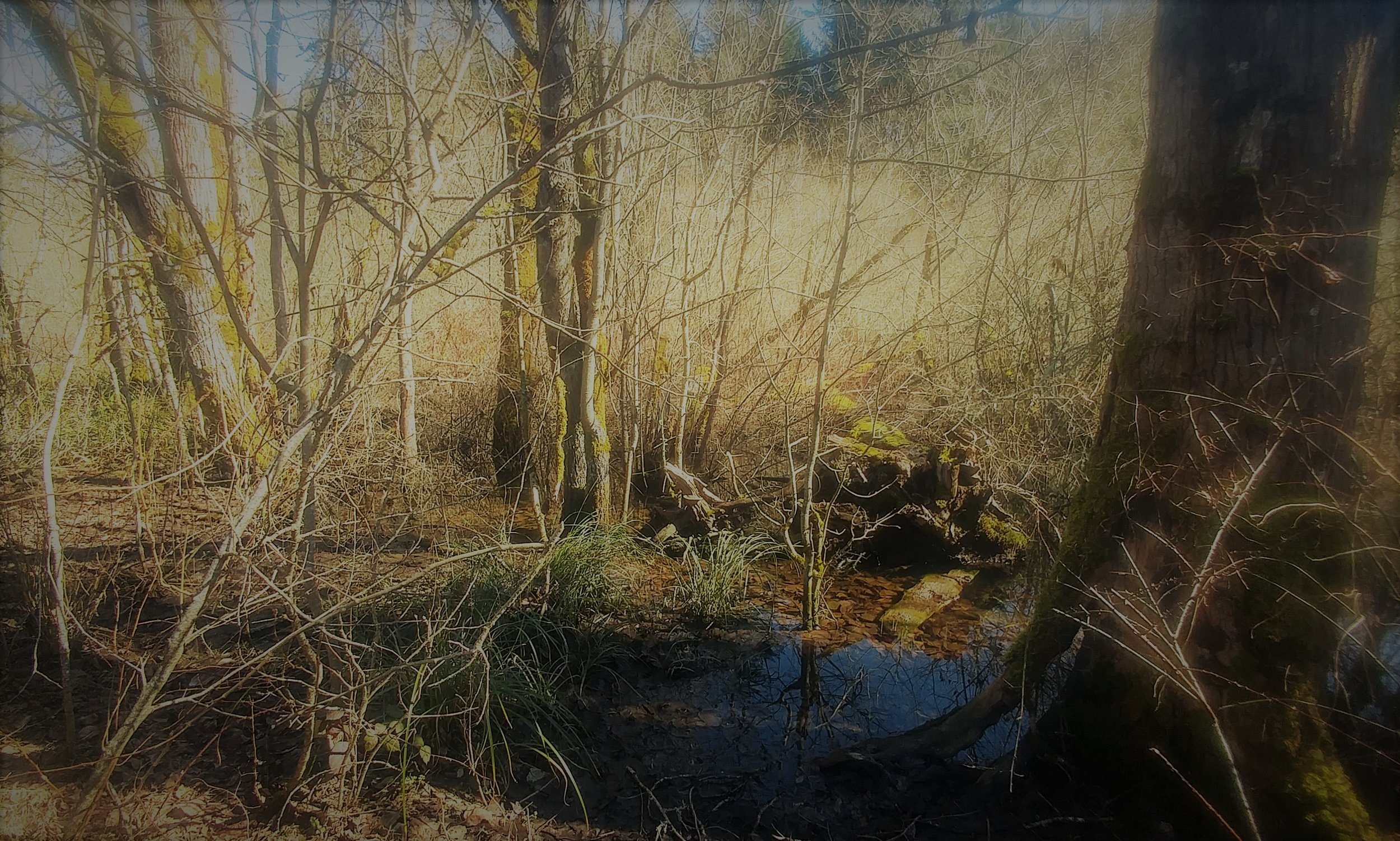Snake Lake in central Tacoma is not actually a lake. It’s a swamp. I suppose we call it a lake because that rhymes with “snake,” and that’s fun, and also “lake” is a better word for promotional purposes than “swamp.” But let’s be honest: this ain’t no lake.
One side of the swamp is mostly a wet, tangled mess of broadleaf trees -- cottonwood, ash, alder -- while the other, the uphill side, is a dryer, hushed cathedral of red madrones and Douglas firs. The cathedral side changes only subtly throughout the seasons, but the messy side swings wildly from lush and buzzing in the summer to, right now, mostly naked, exposing skinny angles, sharp edges, threaded shadows, dense layers, and the muddy, mucky swamp in the middle of it all.
Were it not for the freeway noise, I’d almost expect to find a certain fairy tale witch lurking there.
The Baba Yaga is the Slavic folk expression of the wise old woman archetype. Like many such figures, she lives by herself in the deep wild, connected to the natural land and the things that live and grow there. Baba Yaga’s shrieking hut is said to sit atop chicken legs, protected by a fence crafted of bones and skulls. She flies around in a mortar, using the pestle as a rudder. She is companioned by faithless animals who repeatedly ally with the hapless children who wish to escape her clutches.
Popular culture has, unsurprisingly, reduced the wise old woman archetype into a wicked witch caricature that emphasizes her frightfulness and acts as a warning: Don’t go near the swamp, the wilds, the deep shadows of the forest! It’s frightening there! Wouldn’t you like instead to sit by the fire in your warm home with a cup of tea and go to bed early? Pretend the swamp’s a lake and cross your ankles under the chair. Swamps and Baba Yaga are understood to be ugly, wicked, and scary, with an unfortunate penchant for swallowing people. We’re supposed to be afraid.
Fear might be the right response, but not because Baba Yaga is evil. She is deeply wild and powerfully wise and those things can be terrifying in a world that prefers to brighten up shadows and smooth the wrinkles of our years. She is terrifying because she lives outside the bounds of convention, because she tells the truth unvarnished, because her compass points unflinchingly toward the center. She is scary because she has demands for us that we’re not certain we can fulfill without turning everything inside out.
Baba Yaga embodies the kind of power that demands our deepest work in service of our own sturdy transformation. If she threatens to eat you up, it’s not out of hunger or greed -- she is wholly self-sufficient, after all -- it’s because swallowing you whole is the only way to effect your vital transformation. And she won’t apologize for it, either -- much to the dismay of a world that would prefer its women to be smooth and simpering and its dark swamps to be limpid blue lakes.

